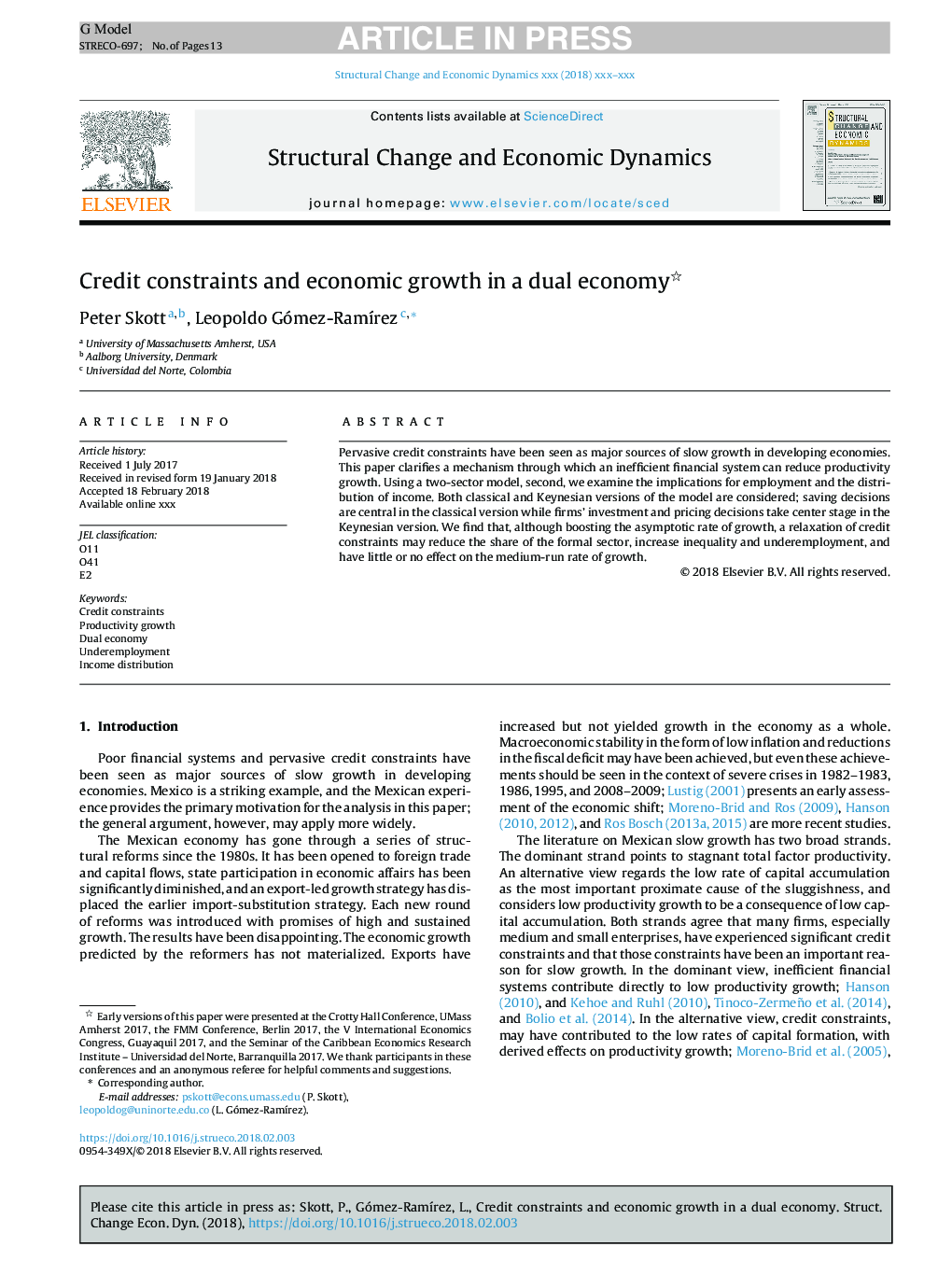| Article ID | Journal | Published Year | Pages | File Type |
|---|---|---|---|---|
| 7388728 | Structural Change and Economic Dynamics | 2018 | 13 Pages |
Abstract
Pervasive credit constraints have been seen as major sources of slow growth in developing economies. This paper clarifies a mechanism through which an inefficient financial system can reduce productivity growth. Using a two-sector model, second, we examine the implications for employment and the distribution of income. Both classical and Keynesian versions of the model are considered; saving decisions are central in the classical version while firms' investment and pricing decisions take center stage in the Keynesian version. We find that, although boosting the asymptotic rate of growth, a relaxation of credit constraints may reduce the share of the formal sector, increase inequality and underemployment, and have little or no effect on the medium-run rate of growth.
Related Topics
Social Sciences and Humanities
Economics, Econometrics and Finance
Economics and Econometrics
Authors
Peter Skott, Leopoldo Gómez-RamÃrez,
